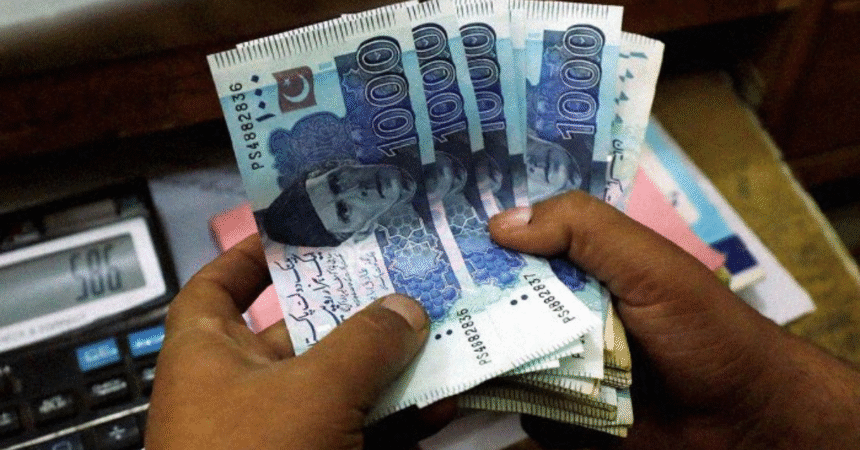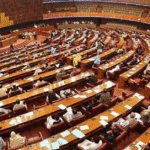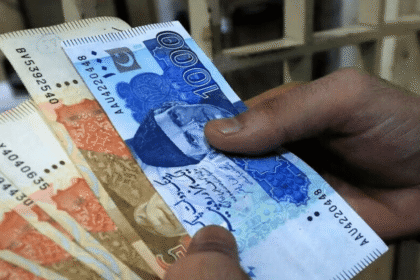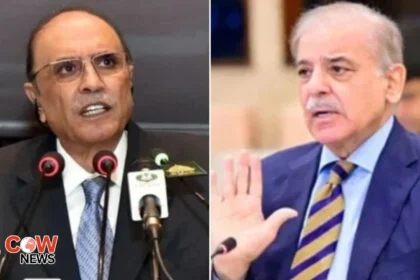In a significant development, the Ministry of Finance of Pakistan has officially announced the new ‘Diyat’ amount for the fiscal year 2024-25, setting it at Rs 8,103,955. This figure represents an increase of Rs 1,346,053 from the previous year’s amount of Rs 6,757,902, directly correlating with the rising market price of silver. This adjustment, mandated by law, has profound implications for victims of violent crimes and their families, as well as the broader legal landscape in Pakistan.
Understanding Diyat: A Concept Rooted in Islamic Law
Definition and Purpose
Diyat, which translates to “blood money,” serves as compensation paid to the heirs of a victim in cases of murder or bodily harm under Islamic law. The concept is entrenched in Islamic jurisprudence, emphasizing justice and reparation for victims of violent crimes. The purpose of Diyat is to provide financial relief to the family of the deceased or injured party, helping them cope with the loss or suffering caused by a crime.
Historical Context
The practice of Diyat has deep historical roots in Islamic tradition, dating back to the time of the Prophet Muhammad (PBUH). It is based on the Quran and Hadith, which lay down principles for justice, retribution, and compensation. The idea is not just to punish the perpetrator but also to restore balance and provide for the aggrieved party. In many Muslim-majority countries, including Pakistan, Diyat plays a crucial role in the legal framework addressing violent crimes.
Legal Framework in Pakistan
In Pakistan, the legal foundation for Diyat is primarily outlined in the Pakistan Penal Code (PPC) and the Islamic legal system. Specifically, subsection (2) of Section 323 of the PPC stipulates that the Diyat amount should be revised based on the fluctuations in the market price of silver. This law ensures that the compensation remains relevant to the current economic conditions and that it reflects the value of the materials used as a standard for calculating the Diyat.
The New Diyat Amount: Analysis and Implications
Breakdown of the Increase
The new Diyat amount, set at Rs 8,103,955, indicates a significant rise from the previous year’s figure. This increase of Rs 1,346,053 corresponds to the soaring prices of silver in the market, which can be attributed to various economic factors, including inflation, global market trends, and domestic demand.
The determination of Diyat in relation to the value of silver is vital, as silver serves as a common benchmark for valuation in many cultures and legal systems. By anchoring the Diyat amount to a tangible commodity, the government aims to maintain fairness in compensation while accounting for economic changes.
Impact on Families
The increase in the Diyat amount has several implications for families affected by violent crimes:
1. Financial Support: For families who have lost a loved one due to murder or have a member suffering from bodily harm, the updated Diyat amount can provide crucial financial support. This compensation may assist in covering medical expenses, funeral costs, and other financial burdens that arise from such tragedies.
2. Emotional Relief: While no amount of money can replace a lost life or alleviate the pain of injury, receiving compensation can offer some emotional relief. It can serve as recognition of the injustice suffered and may help families in their healing process.
3. Encouragement for Settlements: The revised Diyat amount may facilitate negotiations in legal cases, allowing families to reach settlements without prolonged court battles. This can expedite justice and provide quicker resolutions to disputes.
Legal Implications
The adjustment of the Diyat amount is not just a financial decision; it also carries legal ramifications:
1. Impact on Legal Proceedings: The new Diyat amount will likely influence ongoing and future legal proceedings. Lawyers and legal representatives will take the updated figure into account when negotiating settlements or presenting cases in court.
2. Incentive for Alternative Resolutions: The existence of a clear and updated Diyat amount may encourage families to pursue reconciliation and settlement outside of the courtroom, reflecting the Islamic principles of forgiveness and community cohesion.
3. Judicial Consistency: By adhering to the legal framework governing Diyat, the judiciary can demonstrate consistency in applying the law. This consistency is essential for maintaining public trust in the legal system and ensuring that victims receive fair treatment.
Cultural and Social Dimensions of Diyat
Societal Perceptions
The concept of Diyat is not only a legal matter but also a cultural one. In many communities, the amount of Diyat can be seen as a reflection of the victim’s status, wealth, and the socio-economic conditions of the families involved. This can sometimes lead to disparities in how Diyat is applied, where wealthier families might negotiate higher compensation due to their resources.
Challenges and Criticism
Despite its intended purpose, the Diyat system is not without its challenges and criticisms:
1. Economic Disparities: There are concerns that the Diyat system can exacerbate existing economic inequalities. Wealthy families may be able to negotiate higher compensation, while poorer families might struggle to obtain a fair amount. This disparity raises questions about the equitable application of justice.
2. Abuse of the System: Some critics argue that Diyat can be misused, where perpetrators may view it as a way to escape legal repercussions. In cases where families accept Diyat in exchange for dropping charges, it can undermine the pursuit of justice and accountability.
3. Pressure on Victims’ Families: Families of victims may face societal and familial pressure to accept Diyat, even if they believe that the compensation does not reflect the true value of their loss. This pressure can lead to hasty decisions that may not be in their best interest.
The Role of Community
Community plays a crucial role in the Diyat process. Local customs and norms often influence how Diyat is perceived and negotiated. In many cases, community leaders or elders may mediate discussions between families, promoting reconciliation and encouraging amicable settlements. This communal involvement can be beneficial, but it can also complicate legal proceedings if informal resolutions conflict with legal standards.
Broader Context: Diyat and Justice in Pakistan
The Justice System
The Diyat system operates within the larger context of Pakistan’s justice system, which has faced numerous challenges over the years. Issues such as corruption, lengthy court procedures, and a backlog of cases often hinder the delivery of timely justice. In this environment, the Diyat system offers a potential pathway for quicker resolutions, but it also raises concerns about the adequacy of formal judicial processes.
Alternatives and Reforms
As discussions about the Diyat system continue, there are calls for reforms to ensure that the system remains fair and just:
1. Standardization of Diyat Amounts: Advocates argue for more standardized guidelines to determine Diyat amounts, aiming to reduce discrepancies based on socio-economic status.
2. Enhanced Legal Protections: Strengthening legal protections for victims’ families and ensuring that they are not pressured into accepting Diyat can help maintain the integrity of the justice system.
3. Public Awareness Campaigns: Increasing awareness about victims’ rights and the Diyat process can empower families to make informed decisions. Education on the implications of accepting Diyat versus pursuing legal action is crucial.
The government’s decision to set the Diyat amount for the fiscal year 2024-25 at Rs 8,103,955 reflects an ongoing commitment to address issues of justice and compensation in Pakistan. As the legal framework adapts to changing economic conditions, the implications of this increase extend far beyond mere numbers.
For families affected by violent crimes, the revised Diyat amount offers a glimpse of hope and potential financial relief, but it also raises important questions about the equitable application of justice. As society navigates the complexities of Diyat, continued dialogue and reform efforts will be essential to ensure that the system serves its intended purpose of providing justice and support to victims and their families.
The evolving nature of Diyat highlights the need for a holistic approach to justice that balances legal requirements with cultural sensitivities. As Pakistan continues to grapple with its socio-economic challenges, the ongoing discourse surrounding Diyat will play a crucial role in shaping the future of justice in the country.
#Diyat #BloodMoney #Pakistan #Justice #IslamicLaw #Compensation #LegalReform #SocioEconomicJustice







